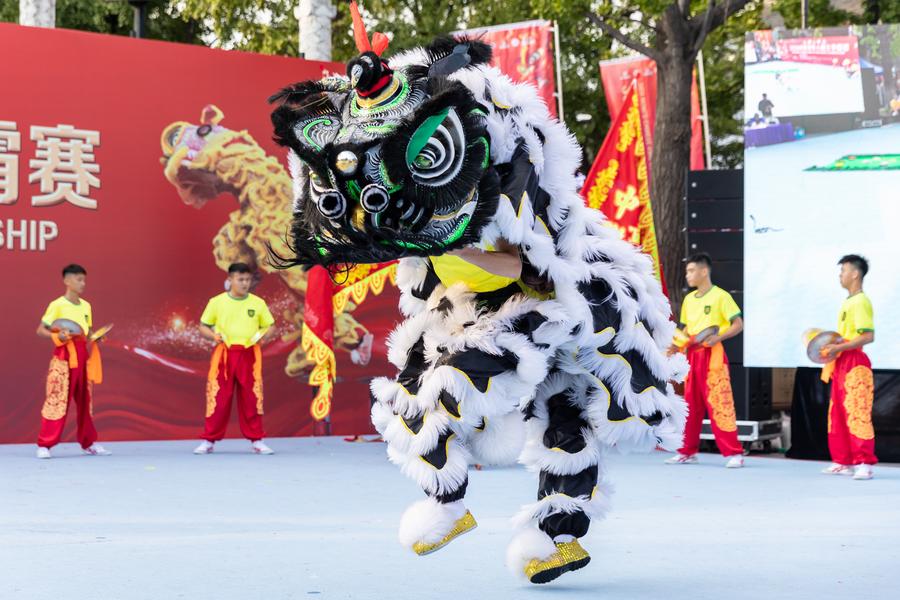
The lion dance彩娱乐专线, believed to date back over a thousand years in China, continues to bridge diverse communities today, as seen through the journey of Kelvin Tran and his commitment to preserving this vibrant tradition.
by sportswriter Dong Yixing
NANJING, Sept. 25 (Xinhua) -- For many Chinese born in the 1980s and '90s, the first thing that comes to mind when discussing lion dance is the martial arts movie Once Upon a Time in China III, featuring Jet Li as Chinese martial arts master and folk hero Wong Fei-hung.
In this classic movie, Wong travels from Foshan to Beijing for a "Lion Dance King" competition, where he confronts political intrigue and the cultural clash between tradition and Western influences. As he navigates personal and national challenges, Wong relies on his martial arts skills to protect his loved ones and uphold his principles, creating a narrative rich in cultural heritage.
The origins of lion dance are believed to date back over a thousand years in China. Traditionally performed during the Chinese New Year, cultural festivals, and significant occasions, this art form is intended to ward off evil spirits and invite good fortune.
Over time, lion dance has emerged as a cultural bridge, connecting past and present, East and West, through a shared appreciation for its artistic beauty and symbolic significance.
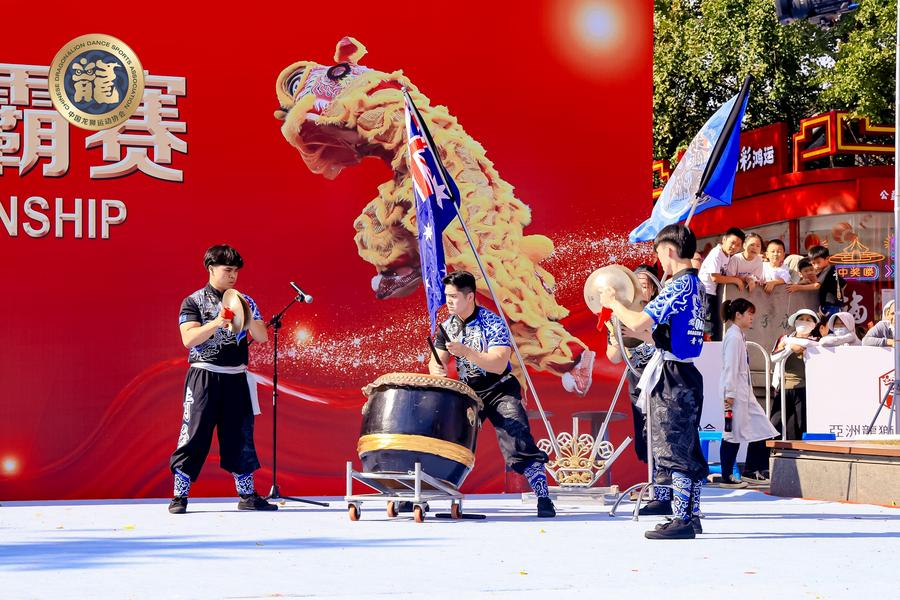
The story of Kelvin Tran, a participant in the 2024 World Chinese King of Lion Dance Championship in Nanjing, Jiangsu Province, reflects this journey of cultural transmission.
Born in Australia to grandparents from Chaozhou in south China's Guangdong Province, Tran grew up in a Sydney neighborhood where lion dancing thrives. His parents often took him to watch lion dance performances, sparking his interest in the art form.
At the age of eight, a family friend introduced him to the practice, marking his pivotal step into the world of lion dance. As his passion grew, Tran co-founded the Qing Fong Dragon & Lion Dance Team in 2018.
Within Chinese communities, lion dance is more than just a performance; it is a communal activity that involves intricate teamwork and rigorous training. For 24-year-old Tran, lion dance is a pathway to build and strengthen community ties in Australia.
"Our membership has grown to over 70 people, so it's quite a big team, and it's gaining popularity, which is great for us," he noted. This growth not only reflects an increase in numbers but also the deepening of relationships among members. "I wouldn't just call them friends; I call them family," Tran emphasized, highlighting how lion dance fosters familial bonds that enhance social cohesion.
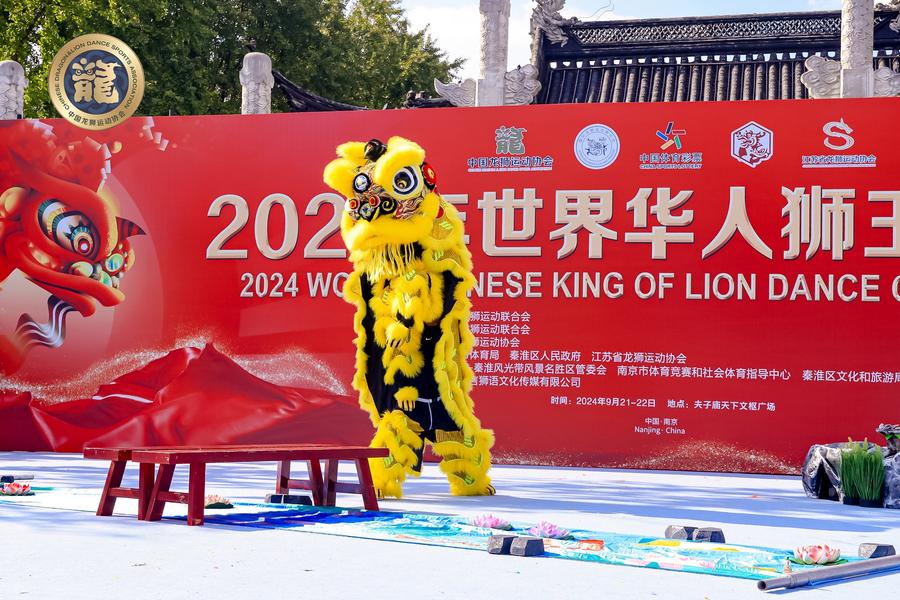
Moreover, lion dance is a testament to community and inclusiveness. "We're open to everyone and anyone," Tran explained. "At the moment, though, it's mostly Asian demographics, but we are more than happy to welcome others into our teams."
This inclusive philosophy is reflected in the diverse lineup of participants at the 2024 World Chinese King of Lion Dance Championship, which has attracted over 100 athletes from China, Singapore, Malaysia, Indonesia, Thailand, Australia, and Canada, among others.
Unlike Tran, who has Chinese heritage, Syahdatulazmi Bin Bustamam from the Persatuan Tarian Singa dan Naga Kun Seng Keng Muar Johor Malaysia team discovered his passion for lion dance two decades ago after attending a performance in his hometown. Captivated by the vibrant display, he fell in love with the art form instantly.
By day, Syahdatulazmi runs a restaurant with his wife, but he remains committed to practicing as the lion tail three days a week, dedicating two hours per session.
"I've been doing lion dancing since I was a kid," said the 31-year-old, which is considered relatively old in the world of lion dance, through an interpreter. "It's become a hobby for me; I have to do it every single day."
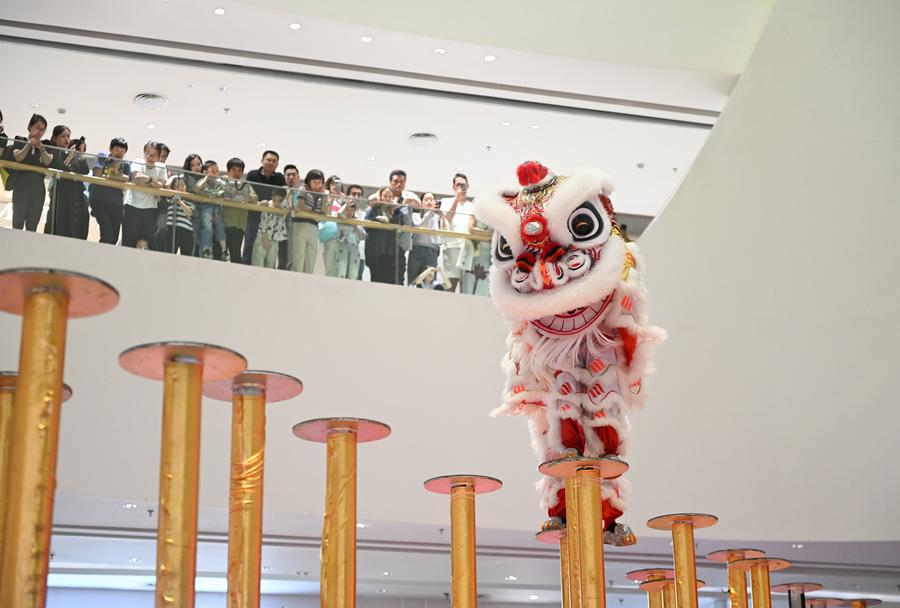
Due to adverse weather conditions, the high-pole competition - renowned for its athleticism and acrobatic stunts - was relocated to a shopping mall on the first day of the competition.
但别担心,今天就给大家分享 10 种有效的减压方法,彩娱乐注册CLY588.VIP助你轻松应对职场压力,重拾活力与激情!
Among the audience was 25-year-old Kiki, who was drawn by the sound of gongs and drums. After watching the exciting competition, she remarked, "I'm very happy to see the inheritance of traditional culture. I had only seen performances in China before, and I didn't realize that different countries each have their own unique features."
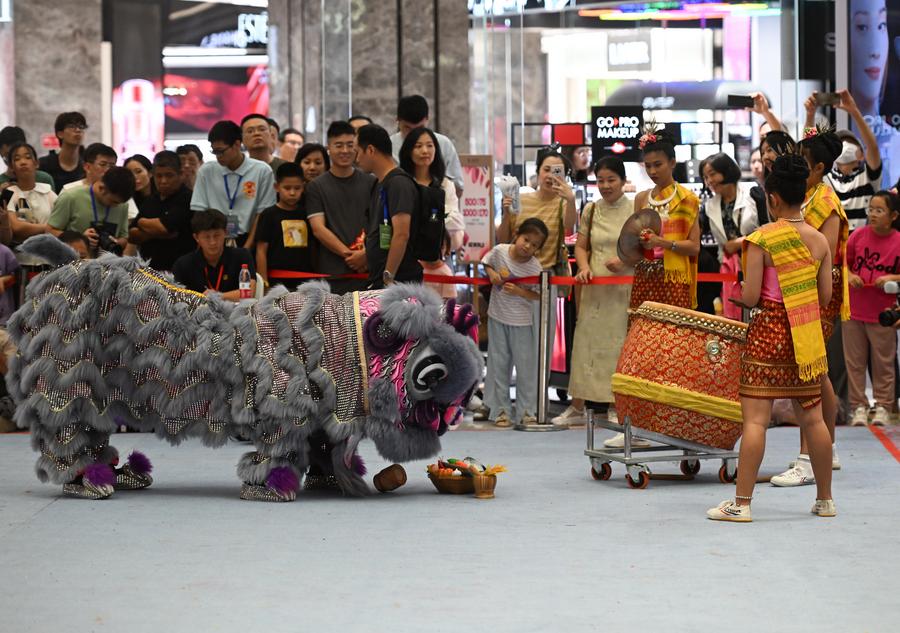
The traditional southern lion dance competition, along with dragon dance performances and cultural exchanges related to these ancient traditions, was eventually relocated back to its original venue, the Confucius Temple, a prominent tourist attraction on the banks of the picturesque Qinhuai River in Nanjing.
"A venue like this adds historical and cultural context to the event," said a tourist surnamed Han. "It also provides an authentic cultural experience, making my visit more memorable and enriching. I really enjoy watching the Indonesian team."
Despite not being crowned the "Lion Dance King," Tran was satisfied with his team's performance at their first international competition. "Competing at such a significant landmark in Nanjing and in China overall is very special. The architecture and cultural significance are incredibly meaningful to me."
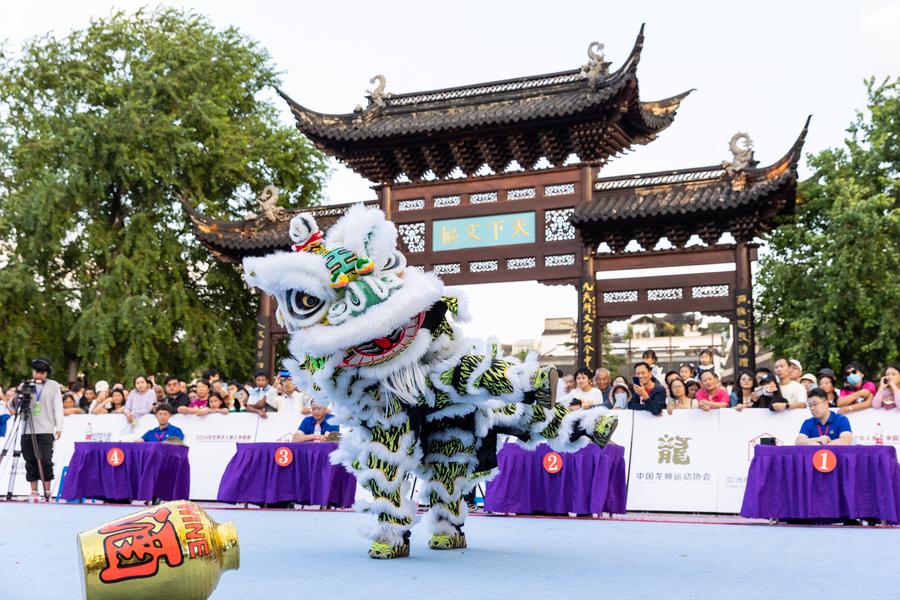
Tran's story touches on the cyclical nature of cultural transmission. As he watched his two-year-old nephew, who mirrored his own introduction to lion dance during childhood, he expressed hope: "It's nice to be able to inspire the younger generation ... Hopefully, I'll teach him if he likes it."
Back in the Qing Dynasty (1644-1911), during the time of Once Upon a Time in China III, lion dance united communities and asserted cultural identity. Today, it serves as a medium to connect diverse cultures, fostering understanding and respect.
Tran's desire to continue the tradition ensures that lion dance remains a vibrant, living cultural practice, inspiring future generations as it has inspired him, passing on the lion's enduring symbol of power, wisdom彩娱乐专线, and superiority. ■
